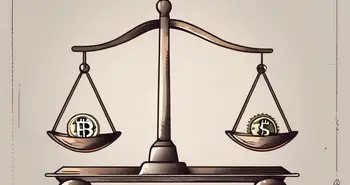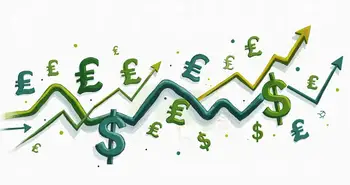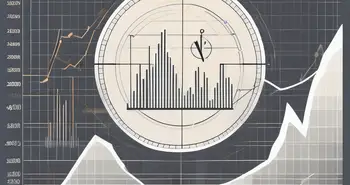Fixed vs. Floating Exchange Rate: Which System Benefits Global Trade?

As someone who has spent years analyzing currency markets and their dynamics, I can say that understanding exchange rates is fundamental for anyone involved in global finance. Exchange rates determine how much one currency is worth in relation to another and play a critical role in international trade and investment.
What is a Fixed Exchange Rate?
A fixed exchange rate, also known as a pegged rate, is a currency value that is tied or pegged to another major currency or a basket of currencies. The government or central bank maintains this rate by buying and selling their own currency in the foreign exchange market. This system aims to provide stability and predictability in international transactions.
From my experience, countries with fixed exchange rates often do so to promote trade and attract foreign investment. This was particularly evident during my analysis of the Hong Kong Dollar, which is pegged to the US Dollar. This approach has helped stabilize the economy, especially during turbulent times.
What is a Floating Exchange Rate?
In contrast, a floating exchange rate is determined by the market forces of supply and demand. The value of the currency fluctuates based on market conditions, including economic indicators, political stability, and overall trader sentiment. Countries like the United States and Canada adopt this model, allowing their currencies to float freely in open markets.
Having observed the powerful effects of floating rates, I often emphasize to my students that this system reflects the country's economic health. For example, during the financial crisis in 2008, we witnessed significant volatility in exchange rates, directly affecting imports and exports.
The Mechanisms Behind Exchange Rates
The mechanisms of exchange rates can make for intricate yet fascinating study. The way these rates function impacts everything from consumer prices to international trade agreements.
How Fixed Exchange Rates Work
Governments or central banks set fixed exchange rates based on a benchmark currency. They then intervene in the foreign exchange market by adjusting their own currency's value to maintain that fixed rate. This often involves holding large reserves of foreign currencies to manage fluctuations effectively.
In my observations, this can create an artificial economic environment. For example, if a country's currency is overvalued, it might lead to trade deficits. I often find it intriguing how countries like China use these mechanisms to control trade advantages but face criticism for market manipulation.
How Floating Exchange Rates Work
Floating exchange rates operate through supply and demand dynamics. When demand for a currency rises, its value increases; conversely, if demand falls, so does its value. Factors influencing this include inflation rates, interest rates, and economic indicators.
From my analysis, this system is often more responsive to changes in economic conditions, making it easier for countries to adjust to economic shocks. However, this volatility can lead to uncertainty for businesses and investors, a concern I regularly convey to my clients.
Fixed vs Floating Exchange Rates
When comparing fixed and floating exchange rates, it's essential to understand their implications for economic activities. Each system has its own pros and cons based on stability, predictability, and flexibility.
Stability and Predictability
Fixed exchange rates provide a stable and predictable environment, making it easier for businesses to engage in long-term investments. This stability is often preferred by exporters who wish to avoid the unpredictability of currency fluctuations.
However, I caution that this stability can come at the expense of economic adjustments. Countries with fixed rates may find it challenging to respond effectively to economic shocks, limiting their growth potential.
Flexibility and Market Influence
On the flip side, floating exchange rates offer flexibility, allowing economies to adjust and respond to real-time market conditions. This responsiveness can be essential in a rapidly changing global market.
However, this can also lead to unpredictability. During my years in the finance sector, I've seen several businesses struggle with fluctuating exchange rates impacting their profitability. Thus, I always recommend risk management strategies for companies engaged in international trade.
The Economic Impacts of Exchange Rates
The choice between fixed and floating exchange rates dramatically impacts economic conditions, influencing inflation, interest rates, and trade balances.
Effects on Trade and Investment
A country’s exchange rate can affect its international competitiveness. In a fixed exchange rate system, exporters may benefit from the predictability of costs, while importers encounter stable prices. In contrast, a floating exchange rate can lead to price volatility, impacting import-export dynamics.
In my consulting work, I have advised many firms on adjusting their strategies based on exchange rate trends, often encouraging diversification to hedge against currency risk.
Implications for Inflation and Interest Rates
Fixed exchange rates can lead to lower inflation rates, as they limit the central bank’s ability to adjust monetary policy freely. However, this could cause interest rates to become artificially low or high, depending on the situation.
In floating exchange rates, inflation can rise and fall based on market forces. It’s crucial for central banks to be vigilant and ready to wield interest rate tools effectively. I’ve witnessed firsthand how this interplay can shape economic forecasts, which highlights the importance of understanding these mechanisms in-depth.
Choosing Between Fixed and Floating Exchange Rates
In deciding between fixed and floating exchange rates, governments and businesses must weigh their unique circumstances and priorities. Each system offers a distinct set of advantages and challenges.
Considerations for Governments
Governments must consider their economic stability, trade relationships, and inflation control objectives when choosing an exchange rate system. Countries with stable economies might favor floating rates for their flexibility, while developing nations may look toward fixed rates for the stability they provide.
In my discussions with policymakers, I often emphasize that the choice should align with their long-term economic strategy, balancing risk and opportunity effectively.
Considerations for Businesses and Investors
For businesses and investors, the choice influences financial planning and strategy. Companies heavily engaged in international trade should consider the implications of currency fluctuations. Hedging strategies and risk assessments become key tools in navigating these exchanges.
As an expert, I always advise my clients to stay informed and agile in their approaches. Being prepared for sudden currency shifts can make a significant difference in maintaining profitability in international markets.
FAQ
- What is the primary difference between fixed and floating exchange rates?
The primary difference lies in how the currency's value is determined: fixed rates are pegged to a specific currency, while floating rates are determined by market forces.
- What are the advantages of fixed exchange rates?
Fixed exchange rates provide stability and predictability, which can be beneficial for businesses engaged in international trade.
- What are the disadvantages of floating exchange rates?
While floating rates offer flexibility, they can lead to unpredictability, causing concerns for businesses exposed to currency fluctuations.
- How do exchange rates impact trade and investment?
Exchange rates influence pricing for exports and imports, affecting a country's competitiveness in the global market.
- What should governments consider when choosing an exchange rate system?
Governments need to evaluate their economic goals, stability, and potential effects on inflation and trade relationships.
As you navigate the complexities of fixed and floating exchange rates, take control of your trading experience with Morpher. Our innovative platform, built on the Ethereum Blockchain, offers you the flexibility to trade across multiple asset classes, including forex, without the constraints of traditional brokers. With zero fees, infinite liquidity, and the ability to start investing with as little as $1, Morpher empowers you to maximize your trading strategy in response to market dynamics. Sign Up and Get Your Free Sign Up Bonus today to transform the way you invest and stay ahead in the ever-evolving world of global finance.

Disclaimer: All investments involve risk, and the past performance of a security, industry, sector, market, financial product, trading strategy, or individual’s trading does not guarantee future results or returns. Investors are fully responsible for any investment decisions they make. Such decisions should be based solely on an evaluation of their financial circumstances, investment objectives, risk tolerance, and liquidity needs. This post does not constitute investment advice.

Painless trading for everyone
Hundreds of markets all in one place - Apple, Bitcoin, Gold, Watches, NFTs, Sneakers and so much more.

Painless trading for everyone
Hundreds of markets all in one place - Apple, Bitcoin, Gold, Watches, NFTs, Sneakers and so much more.









